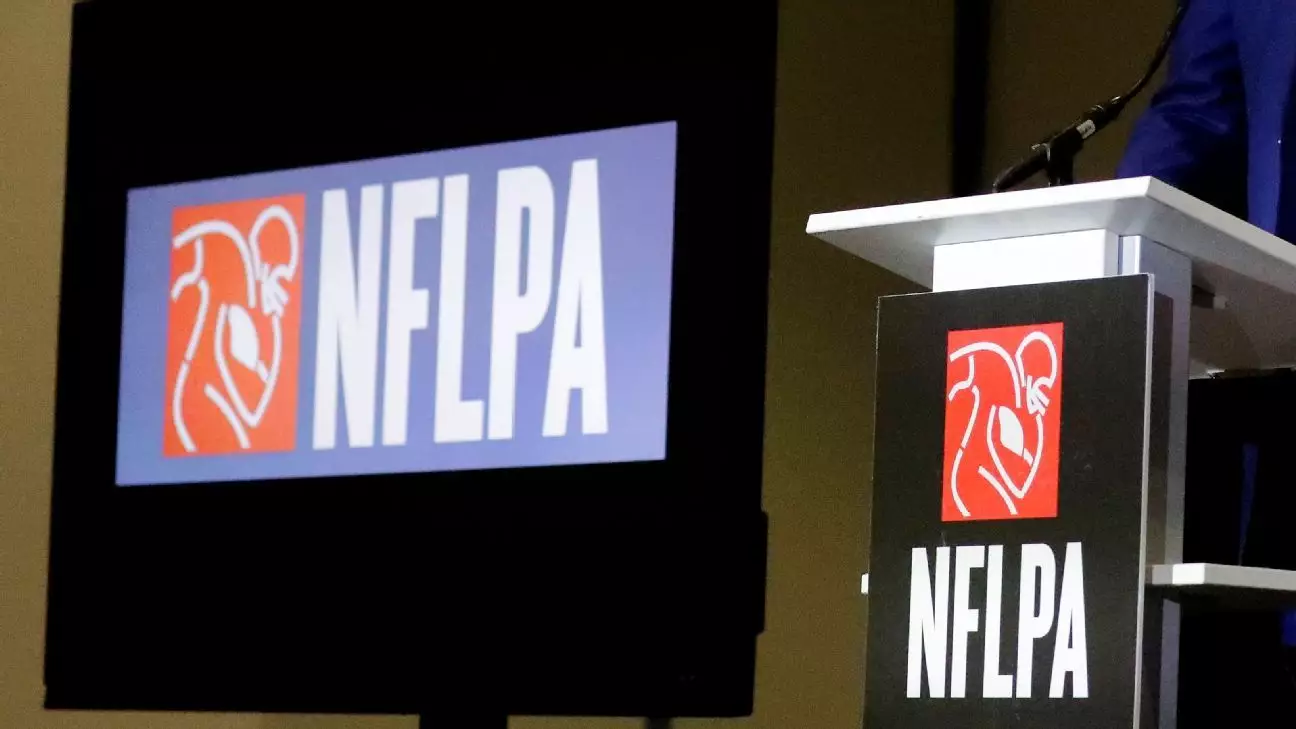The recent appointment of David White as interim executive director of the NFL Players Association marks a cautious attempt at stabilization amid a series of damaging leadership controversies. While some paint this as a positive step, it’s hard to ignore the underlying questions about the union’s integrity and priorities. White’s resume, impressive as it may be on paper, raises doubts about whether the NFLPA is truly ready to confront its foundational issues—or simply seeking a temporary fix that will placate disgruntled players and league stakeholders alike.
Indeed, White’s background—marked by high-profile leadership in entertainment unions and experience at the Federal Reserve—seems crafted to exude credibility. But it’s precisely this breadth of corporate and bureaucratic experience that should give us pause. Labor unions, especially those representing high-profile athletes, need more than the veneer of institutional competence; they require genuine solidarity, transparency, and a commitment to transformative change. White’s appointment, following a process clouded in secrecy and political maneuvering, feels more like superficial window dressing than a true step toward reform.
Furthermore, the choice to elevate White—who was notably absent from the league’s initial list of finalists—underscores a troubling pattern of insiders and opaque decision-making. The fact that the union’s internal machinations remain shrouded in confidentiality fosters an environment where accountability is sidelined. Is this truly a union fighting for its members, or a club that prefers to govern behind closed doors, appeasing powerful interests instead of prioritizing players’ welfare?
The Apparent Disconnection Between Leadership and the Players
The union’s recent turmoil reveals a stark disconnect between leadership figures and the players they are meant to represent. The resignation of Lloyd Howell Jr. over conflicts of interest—particularly the revelation of his ties to private equity—exposed a deeper vulnerability in the union’s checks and balances. It wasn’t just a matter of breach of protocol but a breakdown of trust, illustrating how poorly the organization has managed conflicts that threaten to undermine its legitimacy.
For many players, the message is clear: leadership insulated in exclusive circles cannot credibly address issues like player safety, financial security, or long-term career planning. The demands from player representatives, from demanding accountability to championing transparency, are not mere proceduralities—they are essential for restoring confidence. Yet, the process that led to White’s appointment—characterized by backroom meetings and a lack of player participation—sends a disturbing signal: the union continues to prioritize elite political maneuvering over authentic empowerment.
The fact that players like Josh Harris openly express concerns about trust highlights the fundamental challenge faced by the organization. The union must transcend superficial leadership changes and address the core issues: how to genuinely involve players in decision-making, prevent conflicts of interest, and demonstrate unwavering commitment to their interests.
A Window of Opportunity for Genuine Reform
White’s interim tenure presents an opportunity—one that the union cannot afford to squander. It’s a moment ripe for re-evaluation, for shifting from reactionary crisis management to a proactive stance rooted in principles of fairness and transparency. This requires more than just choosing a seasoned executive; it demands a fundamental transformation of how the NFLPA operates.
Player participation must be expanded, with reforms that make leadership accountable directly to the rank-and-file, not just a handful of insiders. The process of selecting a permanent director should be transparent, with clear criteria and broad player involvement. Moreover, the union must confront and dismantle the underlying conflicts of interest that have compromised its credibility—be it conflicts related to private equity ties, league influence, or financial entanglements that threaten to undermine its core mission.
A truly progressive NFLPA should serve as a blueprint for labor organizations in highly commercialized industries. It should champion policies that prioritize the well-being of players not just in terms of immediate earnings, but in their long-term health, post-career stability, and voice in league governance. Only by embracing this comprehensive approach can the union begin to repair the fractured trust of its members.
White’s appointment, if leveraged correctly, could mark a turning point. But it hinges on whether the union’s leadership dares to face hard truths, to embrace accountability, and to prioritize the needs of the players above all else. The forthcoming search for a permanent director must be an inclusive, transparent process—one that places the union’s members at the center of every decision.
Far from an optimistic fairy tale, this is a critical crossroads. The NFLPA must choose whether to perpetuate its current image as a backstage political club or rise to the true challenge: becoming a genuine advocate for its athletes’ rights and well-being. Only then can the union restore its credibility and fulfill the promise of representing those it claims to serve.


Leave a Reply